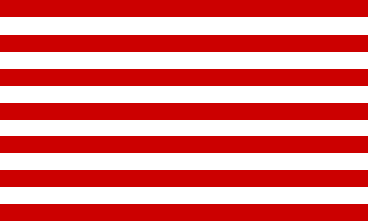
The Importance of HVAC Filtration
You’re probably aware on some level that air filters are a necessary part of your heating and cooling systems. However, you might be surprised to learn just how critical they are. Air filters exist to prevent pollutants from moving through your HVAC systems. These pollutants include, but aren’t limited to, dirt, dust, pollen, pet dander, and mold spores. They can come from the outdoors when they’re carried in on your clothes, or they can be created and dispersed by general, day-to-day living.
No matter what time of year it is, your HVAC system is working hard behind the scenes to keep you comfortable. More frequently than not, a day will come when you need to change / clean your filters.


CleanEffects Whole Home Air Cleaner

SUPER CLEAN THE AIR IN YOUR HOME
-
Removes up to an incredible 99.98% of allergens from filtered air
-
Traps particles as small as .1 micron in size
-
Up to 100 times more effective than a standard 1” hvac air filter
-
Can reduce the need to dust your home or office by 50%
-
Performance verified by leading experts at the Harvard School of Public Health
-
Has the Asthma and Allergy Friendly Certification Mark

Types Of Filters
HVAC filters aren’t universal. You’ll need to buy the right ones if you plan on replacing them.
The first thing to consider is size. While there are standard sizes for furnace and air conditioner filters, they run on a scale, so you’ll need to check and see which ones are used by your own units.
Air filters come in several types, including fiberglass, pleated, washable, and electrostatic air cleaners. Each type has its own benefits, and some might not be compatible with every HVAC unit.

Fiberglass
The biggest advantage of using fiberglass air filters is that they are inexpensive when compared to more advanced filters like pleated filters or electrostatic air cleaners.

Pleated
The main advantage of using pleated filters over fiberglass filters is that they have higher MERV ratings, allowing them to remove more particles, and they also last longer.

Washable
Although washable filters don't have any advantage over the others as far as filtration, they do reduce waste, save money in the long term, and allow you to avoid stocking up on filters.

Electrostatic Air Cleaners
Electrostatic air cleaners are better at filtering airborne particles than regular disposable air filters. These filters are effective at filtering most harmful contaminants from the air without making your HVAC system work harder to push air through a thick filter. These filtration systems are also reusable.
MERV Ratings
MERV stands for Minimum Efficiency Reporting Value, a rating system created by the American Society of Heating, Refrigerating and Air-Conditioning Engineers (ASHRAE). MERV ratings signify an air filter’s effectiveness at decreasing airborne particles and pollutants, determined by the smallest particle it’s capable of trapping (measured in microns). As filters become better at improving indoor air quality, their MERV rating goes up, ranging from 1 to 20.


CHANGE/CLEAN YOUR FILTER!
What Happens If You Don't Change/Clean Your Filter
High Energy Costs
A dirty air filter stifles air circulation, forcing your HVAC system to work overtime to heat or cool your home. This leads to higher electricity bills and can shorten the lifespan of your HVAC unit.
Inconsistent Air Temperature
Because the HVAC system is struggling to blow air, certain areas of your home may be hotter or cooler than you'd like. A dirty air filter can even interfere with the temperature sensors that signal your HVAC system to start or stop. The result is discomfort, inefficient operation, and repair costs due to high strain on the fan motor.
High Risk of System Failure.
A worn out fan motor combined with difficulty in moving air inevitably leads to overheating or freezing up. The air that would move freely through a clean air filter becomes trapped behind a dirty one, placing high energy demand on your HVAC system.
Poor Air Quality
A dirty air filter traps not just air, but moisture. Under humid conditions, this promotes the growth of bacteria and mold, which further clog up the filter. Even worse, these microbes can spread into the HVAC system and into the air in your home, causing allergic reactions and other health issues. Left unchecked, this can cause long-term health problems, especially for young children and the elderly.
Dirty Air Ducts
A buildup of pollutants in your air ducts further reduces the efficiency of your HVAC system and increases pollutants in the air throughout your home. Changing your air filter is much quicker and easier than dealing with the fallout from polluted ducts.
IN CASE YOU DIDN'T KNOW
Members of our Ultimate Savings Club receive 2 FREE filter change outs or cleanings each year along with their preventative maintenance. To learn more CLICK HERE.






